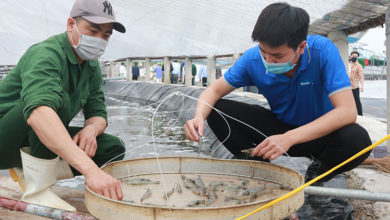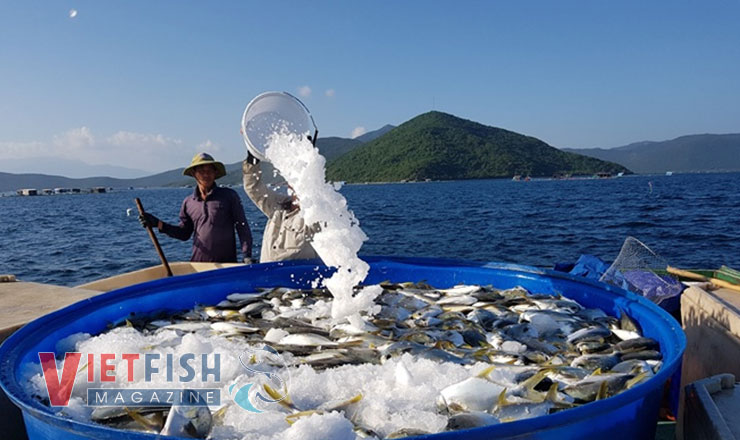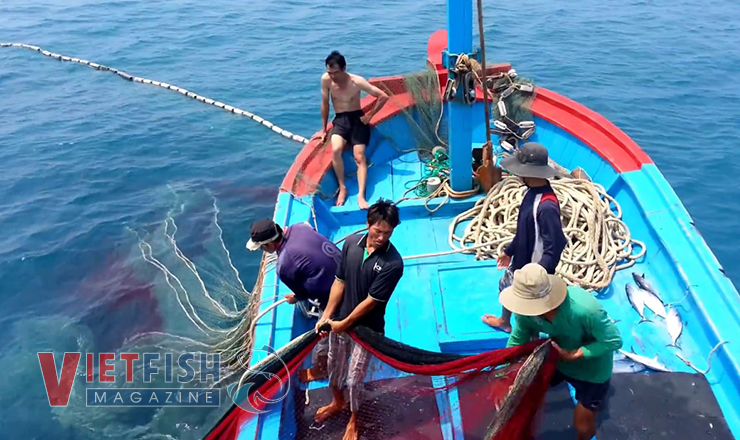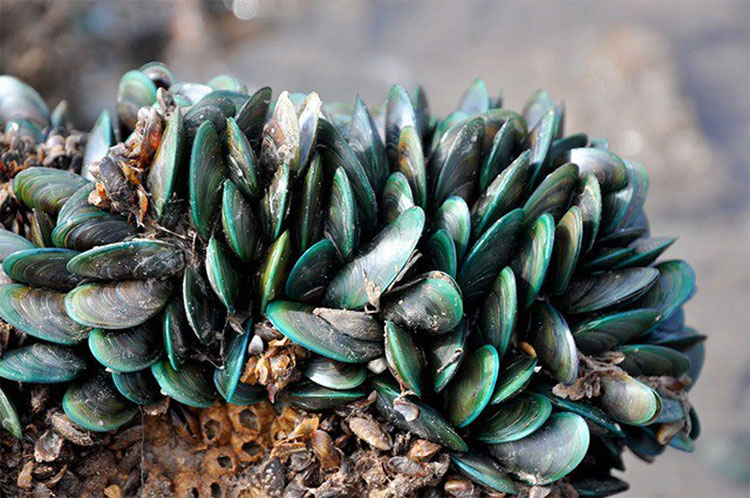Bac Lieu promotes high-tech shrimp farming models
Bac Lieu Province is accelerating the adoption and expansion of high-tech shrimp farming models, contributing to improved disease control, both higher productivity and reduced production costs, and greater environmental sustainability.
Advanced technology, proven results
Among the most notable innovations is the use of Recirculating Aquaculture Systems (RAS), applied in both hatchery and commercial farming operations, especially in super-intensive whiteleg shrimp farming. Currently deployed across more than 2,250 hectares, RAS enables efficient water reuse and precise environmental control, which delivers an estimated 15 – 20% increase in economic returns compared to conventional farming practices.
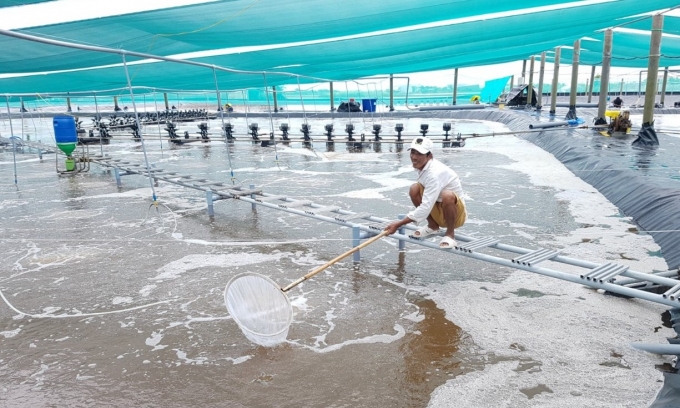
Biofloc technology has also gained traction, particularly when used during the nursery phase (the first 10 – 20 days of cultivation) in both intensive and super-intensive systems. Covering approximately 2,000 hectares, the application of Biofloc helps enhance survival rates, reduce the incidence of digestive diseases, and lower environmental treatment costs. This contributes to an estimated 10 – 12% increase in profitability during the early growth stages.
Other farming models, such as greenhouse, elevated tanks, and HDPE-lined ponds, are increasingly being adopted, often in conjunction with RAS and closed-loop waste management systems. These integrated designs, which typically include grow-out ponds, settling ponds, reservoirs, and treatment ponds, help mitigate environmental pollution and reduce the risk of disease outbreaks. Thanks to these innovations, the success rate for super-intensive shrimp farming has risen from 60% to 70%, while intensive farming models have seen improvements from 38% to 45%.
Local enterprises are playing a pivotal role in advancing these technologies. At Hamlet 15, Vinh Hau A Commune, Hoa Binh District, Long Van Nghia, Director of Long Manh Seafood Company, shared: “We’ve invested in sensor-based water quality monitoring systems, shrimp image analysis through mobile applications, and automated oxygenation systems. We are also developing technology to monitor shrimp feeding behavior, which allows for precise feeding control and minimizes waste.”
Grassroots innovations by farmers are also contributing significantly to sustainability efforts. One such example is the use of aeration pressure to continuously collect shrimp shells and organic waste around the clock, an approach that helps maintain stable and clean pond conditions. “This small change has had a big impact on water quality and disease prevention,” Nghia added.
Digitalization and automation
The application of cloud computing and sensors in pond management enables synchronized monitoring of water quality, shrimp size, and weather conditions, reducing labor costs by 3 – 5% and optimizing the use of medicines and chemicals.
At Truc Anh Biotechnology Co., Ltd., Dao Van Liem stated, “We use PCR testing to control shrimp larvae, farm management software and feeding schedules, and the Tomota app for precise shrimp counting instead of manual methods. Salt electrolysis technology treats incoming water to ensure biosecurity.” He also acknowledged major challenges, such as investment costs and workers’ ability to access technology, which require support from the government and technology transfer units.
The Bac Lieu Agricultural Extension and Seed Center is implementing bio-models combining shrimp, crab, fish, and rice farming, alongside training and the use of the “Green Agriculture” software to bring technology directly to farmers.
Nguyen Duc Khoa, Deputy Head of the Technical Department, said, “We focus on two-stage farming, periodically applying probiotics and planting mangrove forests to develop a sustainable ecosystem and reduce greenhouse gas emissions. The industry is promoting zoning, technology transfer, linking cooperatives with enterprises, and enhancing management capacity and scientific research cooperation.”
The adoption of modern technology contributes to increased productivity, quality, income, and sustainable development of Bac Lieu’s aquaculture sector, affirming its position as the ‘high-tech shrimp capital.’
VFM


